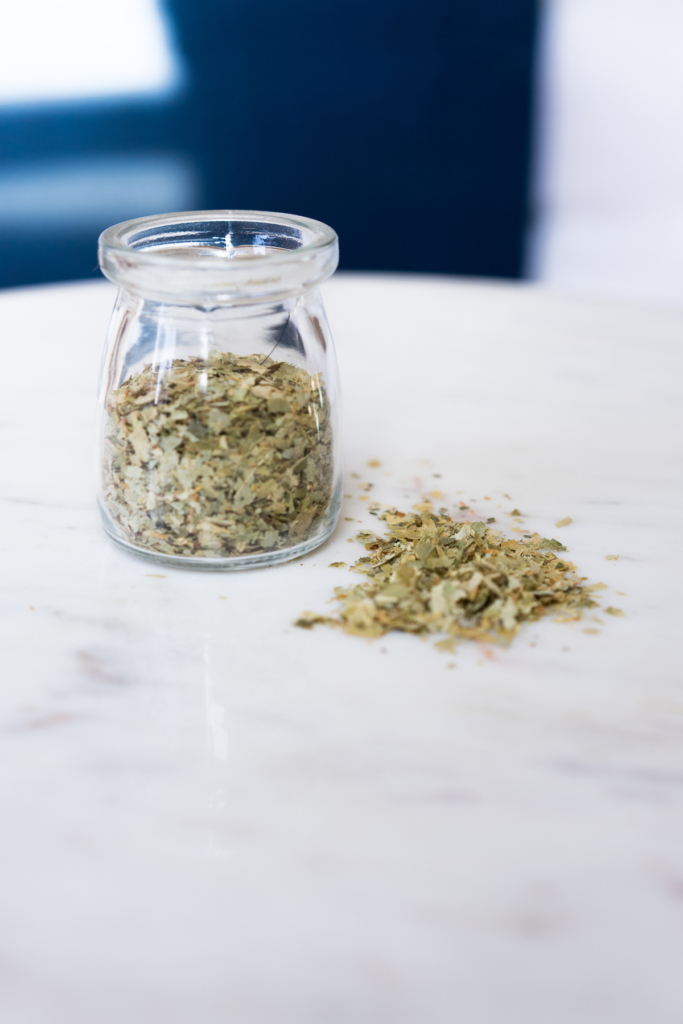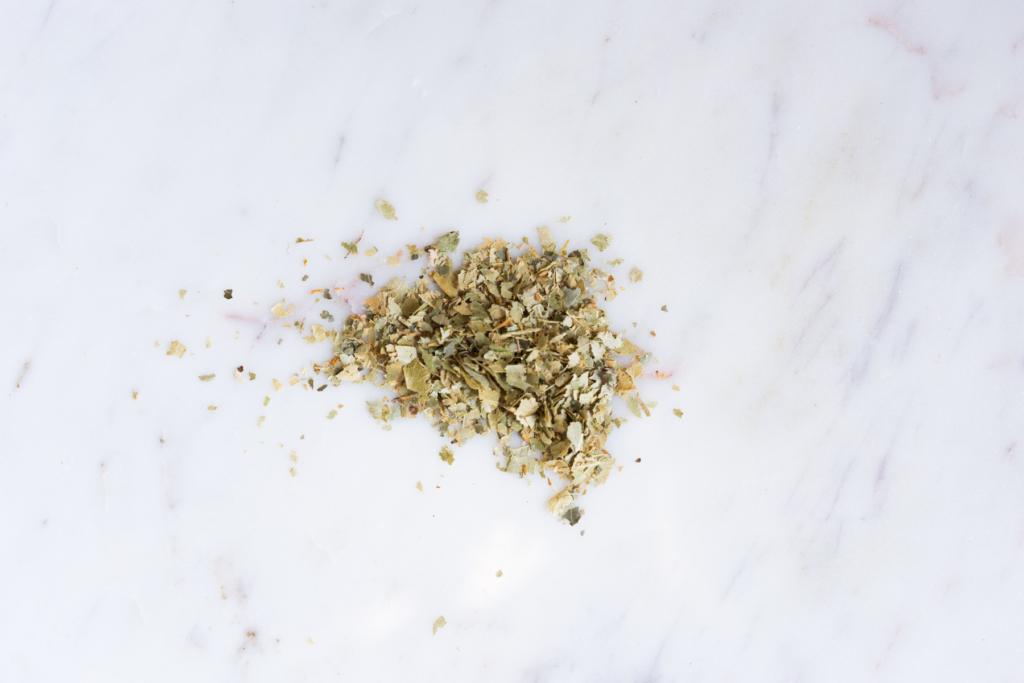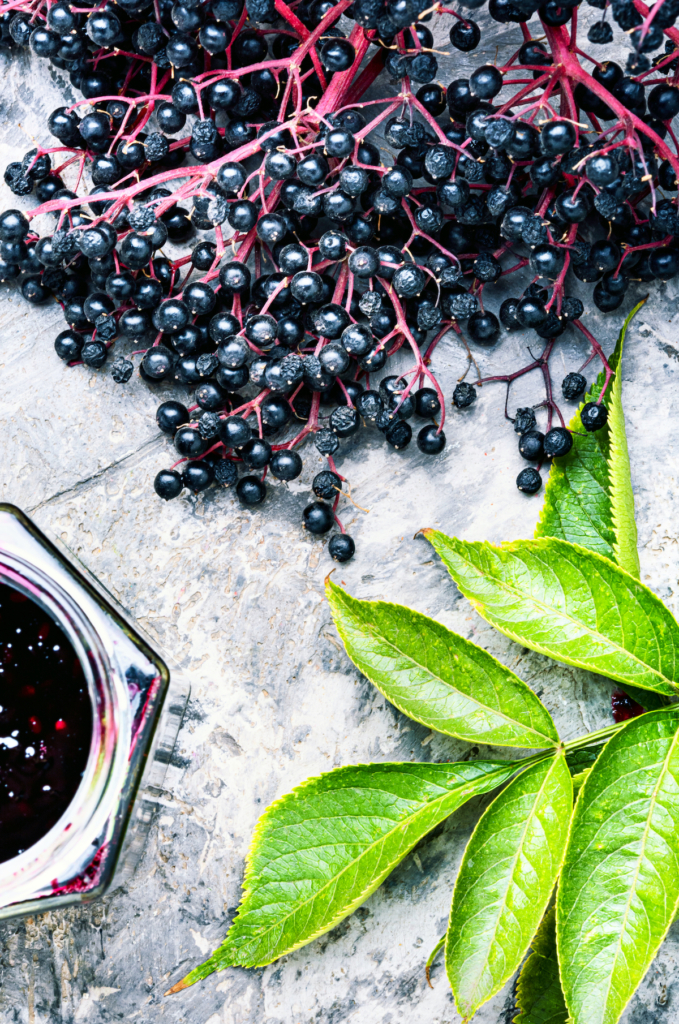DO HERBS BOOST YOUR IMMUNITY?
Eastern VS. Western Medicine Perspective

Ancient medicinal herbs are a still a staple in modern-day Eastern medicine as their immune-boosting power and other healing benefits have worked wonders for thousands of years. Even Western medicine has taken inspiration from TCM herbs, using them to formulate dietary supplements that merge natural remedies with conventional practices.
While both Eastern and Western medicine utilize herbs, they have a slightly different approach and philosophy behind them. Immune-boosting herbs have an exceptional role in fighting off sickness, preventing illness in the first place, and creating an overall sense of well-being, but how do herbs actually boost your immune system? Do they work as well as what TCM suggests? What herbs should you stockpile or run from? Before we dive into those deep questions, let’s start with the basics. What the heck even is an herb?
What Classifies as Herbs?
 If you are not schooled in culinary arts or botany, you probably consider herbs as flavor additions to your dishes. And you’re right – mostly. An herb is a green or leafy part of a plant used for seasoning and is not a main ingredient in the dish.
If you are not schooled in culinary arts or botany, you probably consider herbs as flavor additions to your dishes. And you’re right – mostly. An herb is a green or leafy part of a plant used for seasoning and is not a main ingredient in the dish.
For example, kale is the green part of a stem-based plant, but it is classified as a vegetable. However, cilantro is the leafy part of a stem-based plant as well, but it’s an herb. The flavor is so strong, and the leafy part is very small, so it makes more sense to use it as an herb rather than a side dish to your main course.
Of course, herbs are thought to have more of a use than just tasty garnish. They are commonly mixed into TCM or Western herbal remedies for immune support, digestive health, any other healing purposes.
Which brings us to the next point- fragrance.
In order to classify as an herb, the plant must be very aromatic. The intense fragrance comes from oils within the leaves. If you ever smelt an immune-boosting herb mixture and were hit with a powerful, natural aroma, don’t worry. It’s just the herbs. (Unless you smell chemicals. Then it’s not the herbs.)
Difference Between Herbs and Spices
Now you know herbs are just leafy, fragrant plants used for flavoring or medicine. So, what’s the difference between herbs and spices? Spices are typically woody plants that naturally grow in tropical areas. Any part of the plant OTHER than the leaves would fall into the spice category. This includes bark, seeds, roots, berries, or fruits. If it’s not a leaf, it’s a spice. Spices are also popular in Eastern medicine for their medicinal benefits.
Let’s take immune-boosting turmeric, for instance. It is classified as a spice because it is a fragrant, flavorful root. Cloves are also a spice because they are potent, dried flower buds. Cinnamon is a spice because it is dried bark from the cinnamon tree and packs quite a punch to the taste buds.
Both Western and Eastern medicine classifies their herbs and spices the same way. While you’re learning about herbs and their proposed healing properties, take a look at this herb fact sheet.
Eastern Medicine Perspective on Herbs
 Eastern medicine puts a huge emphasis on one’s entire well-being rather than just treating disease. The goal of using herbs to aid the immune system is for preventive care. Eastern medicine herbs are usually prescribed when the seasons change, which makes sense. Sudden fluctuations in weather is when your immune system becomes more susceptible.
Eastern medicine puts a huge emphasis on one’s entire well-being rather than just treating disease. The goal of using herbs to aid the immune system is for preventive care. Eastern medicine herbs are usually prescribed when the seasons change, which makes sense. Sudden fluctuations in weather is when your immune system becomes more susceptible.
Chinese herbal therapy uses traditional herbs and spices to address unhealthy bodily symptoms, illness, and energetic imbalance too. As far as healing goes, TCM herbs are believed to boost your energy, improve digestion, regulate internal processes, and boost the immune system.
Eastern herbs have been used to ward off disease as far back as 2696 B.C., when China’s first emperor developed healing treatments with them. These formulas have been perfected since then, but modern Eastern medicine still resembles history past.
It should be noted that TCM herbal remedies are typically used when someone is experiencing multiple problems.
TCM Immune Boosting Herbs
 These traditional Chinese medicine herbs boost the immune system and are packed with health benefits.
These traditional Chinese medicine herbs boost the immune system and are packed with health benefits.
Ginseng
Ginseng is known to strengthen the hypothalamic, pituitary, and adrenal axis (HPA), which is what regulates the body’s immune system when experiencing stress. Strengthening the HPA means lowering your chances of getting sick.
Reishi
Reishi also affects the HPA axis. So helps regulate the immune system. It also has cardio-protectiive properties so can affect stress on the heart.
Astragalus
Astragalus is a TCM herb that is arguably foundational in Eastern medicine. It has multiple functions: immune health, liver support, and stress reduction.
Western Medicine Perspective on Herbs
In the United States and the Western world in general, herbs are mostly used in culinary dishes. However, herbal remedies are slowly rising in popularity as Western medicine embraces more from its Eastern medicine counterpart.
The American Journal of Clinical Nutrition published a full study about the health benefits of certain herbs and spices. It’s definitely worth the read.
In the study, several herbs are examined for their healing benefits. Flavonoids (abundant in plants) are of particular interest in conventional medicine because they extend the activity of vitamin C and act as antioxidants, anti-inflammatory agents, and anti-tumor agents. To take it further, most modern medicine that aids the immune system (and more) has its roots in plant extracts.
Western medicine classifies medicinal herbs as “dietary supplements” or “herbal supplements” instead of tried-and-true medicine. So, there’s a bit of a blurred line in terminology. It’s almost as if Western medicine isn’t ready to fully embrace medicinal herbs, but their immune-boosting power is still recognized.
Popular Western Medicine Immune Boosting Herbs
 Though not completely native to the Western world, these herbs support immune health and are becoming popular in modern medicine.
Though not completely native to the Western world, these herbs support immune health and are becoming popular in modern medicine.
Echinacea
Native Americans and Eastern herbalists alike have used this herb. Echinacea supports continual immune health and is best used at the onset of illness.
Elderberry
Black Elderberry is full of antioxidants, anthocyanins, and flavonoids that boost immune health. Elderberry supports overall health as well.
Oregano
Oregano is commonly used in the kitchen throughout America and Europe, but it has medicinal properties too. Oregano is full of antioxidants and phytochemicals that support the immune system.
Olive Leaves
Olive leaf is an herb that boosts immunity via antioxidant support. It also contains oleuropein, which helps the cardiovascular system.
So, Do Herbs Really Boost Your Health?
All medicine is unique in its own way, and both Western and Eastern medicine offer a little something different that appeals to every aspect of well-being. Herbs (and spices) will always be a part of traditional medicine. Dozens of scientific research publications & trials back up the validity of TCM herbs. A quick Google Scholar search yields literally hundreds of results that go in-depth into herbal research.
So, it’s safe to say that herbs really do boost your immune system and offer a natural way to heal the body. There is even scientific research that suggests select herbs and spices have antimicrobial properties that can help prevent cancer. That’s pretty incredible if you ask us.
Our natural world has all the ingredients we need to heal if we just look around. Pair TCM immune-boosting herbs with conventional medicine practices, and you’re cooking with fire.
Comments (0)
Leave a reply
You must be logged in to post a comment.




